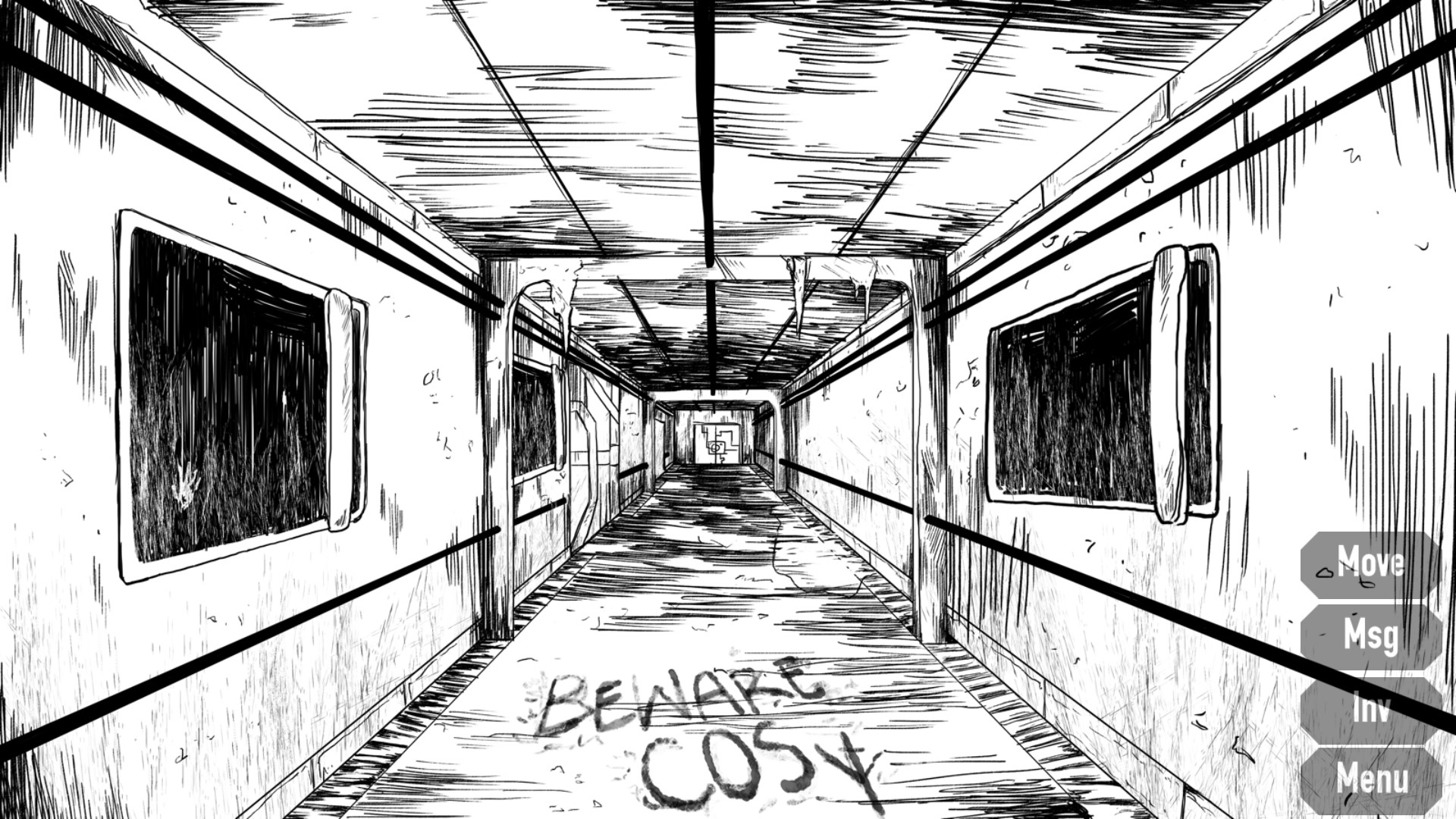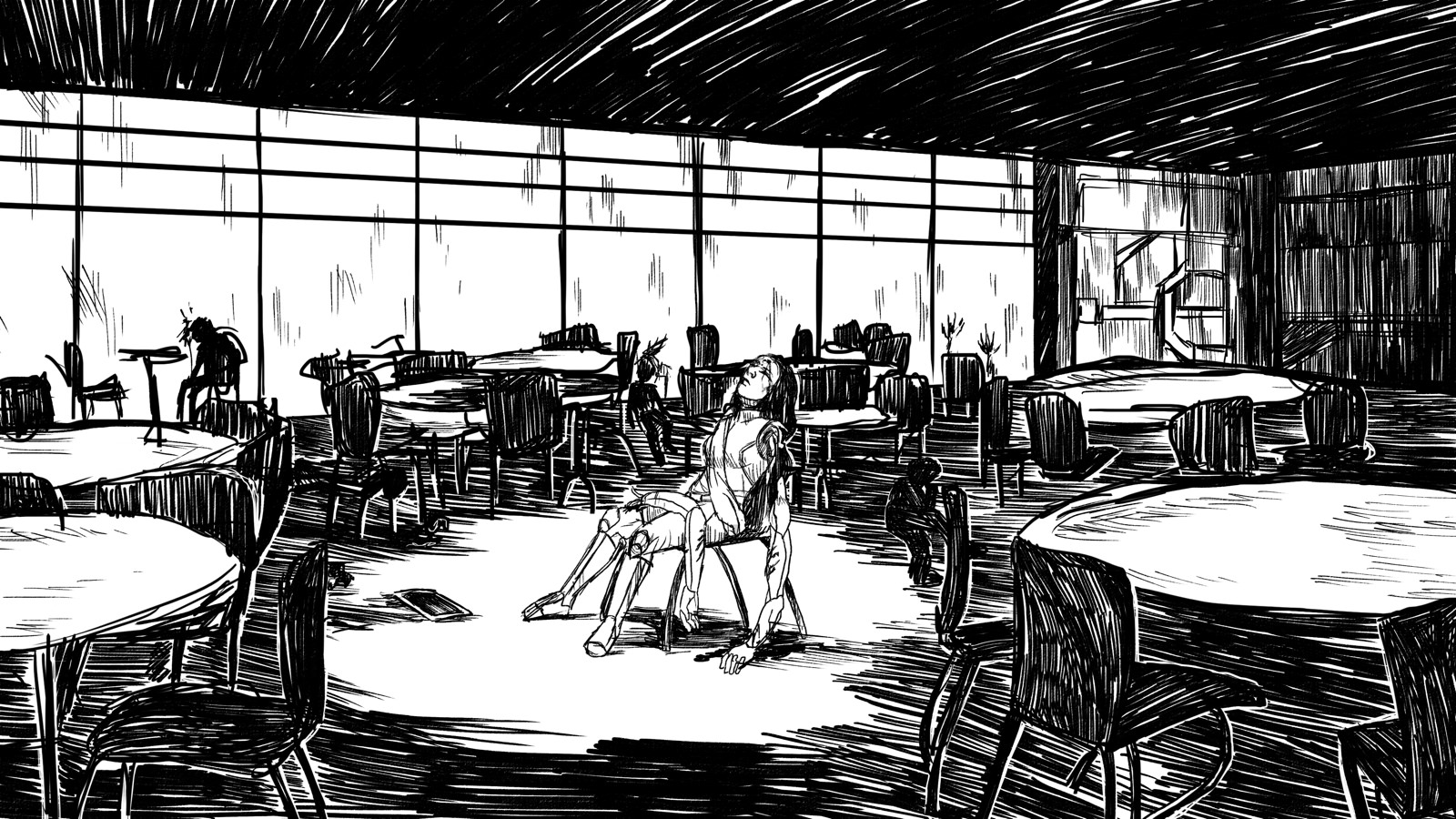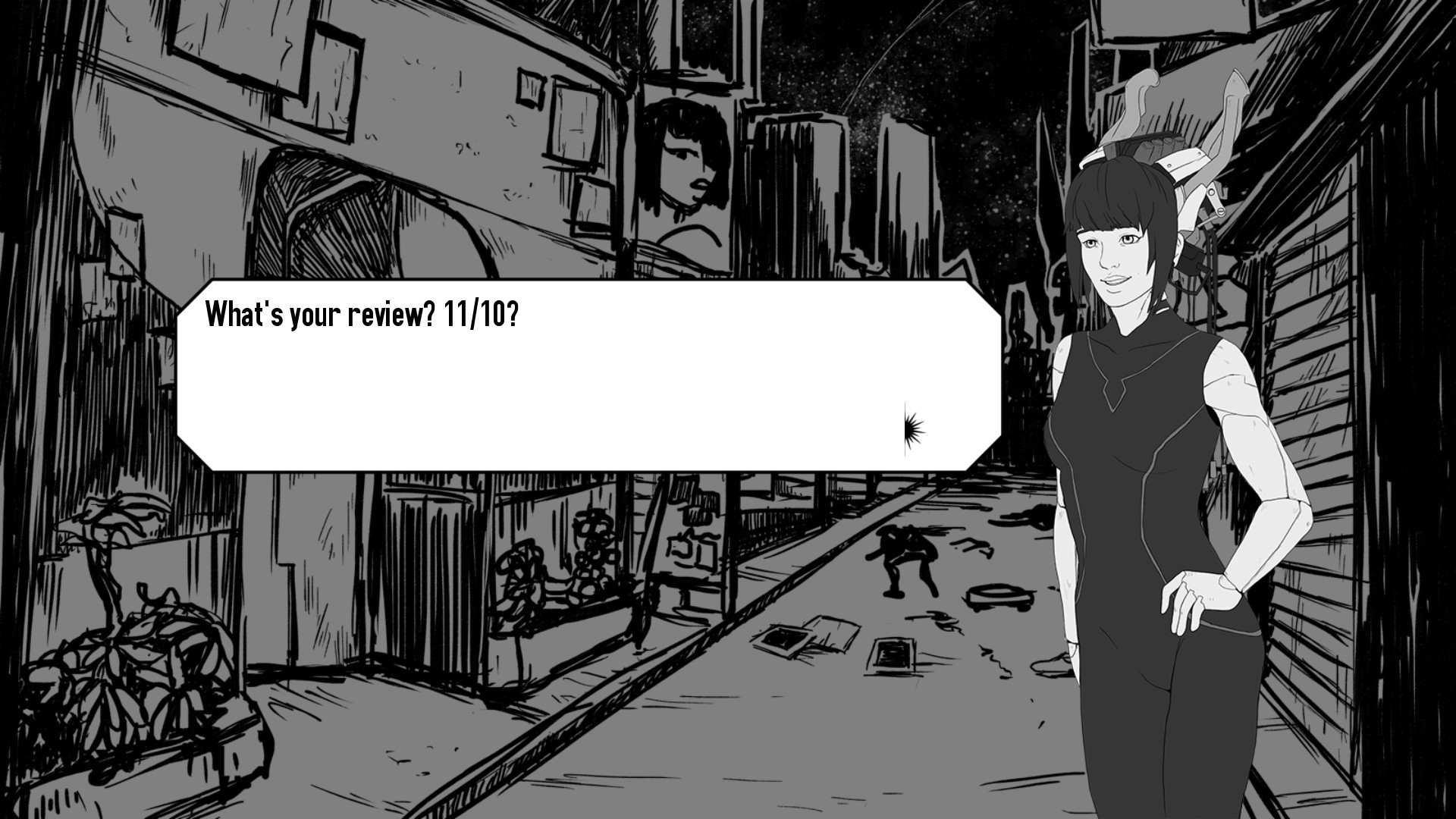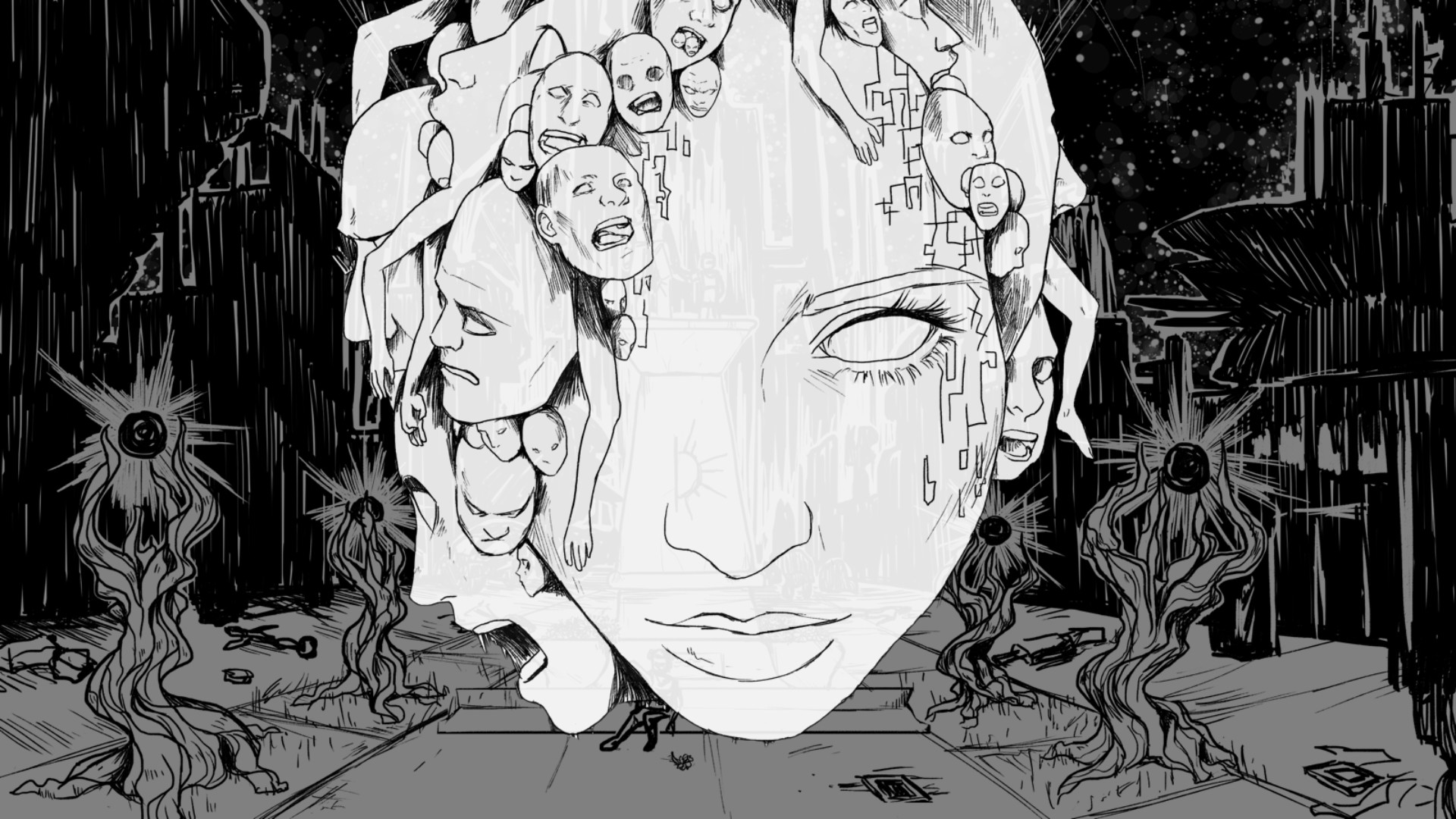
Utopia isn't all it's cracked up to be. Sure, it starts with miracle nanites and VR paradises and direct brain-to-computer interfaces, but before long you're trapped in the abandoned ruin of a disused hospital as it slowly leaks oxygen into the hostile vacuum surrounding a Jovian moon.
In The Mind's Eclipse, doctor and scientist Jonathan Campbell finds himself in just that predicament, with huge gaps in both his memories and his eye sockets (which somehow, mysteriously, still function), with only an untrustworthy AI named L for guidance.
The Mind's Eclipse is a visual novel about exploring a sci-fi station called The CORE. Unlike most visual novels, there are few characters to interact with—other than L, some malfunctioning servant robots, and occasional intrusions from a enigmatic entity calling itself COSy, the entire city is apparently abandoned. Everyone you find is dead and answers come from rummaging through the debris and downloading fragmentary conversations from computers and corpses. It's the kind of thing we're used to seeing in immersive sims like System Shock 2 or Prey, reinterpreted in visual novel form.

Exploring an abandoned space to explore the life and values of the people who once occupied it has appeared elsewhere of course, in games ranging from Everybody's Gone to the Rapture and Gone Home to BioShock and Doom. They may have different amounts of exploded heads, but they all share a common thread of piecing together the lives of people who inhabited these spaces.
"It’s an extension of our fascination with mortality, but projected onto locations," explains Donald Campbell (no relation to the game's protagonist Jonathan Campbell), director of The Mind's Eclipse. "Humans are so curious as a species and what better thing to be curious about than why something has died? We all want to go into that place and rip it apart, find its secrets, and hope to know how we ourselves can succeed by learning from those failures."
Your companion in this investigation is L, a snarky artificial intelligence installed on BOSy, a brain-computer interface implanted in your head. L offers running commentary, as well as insisting that you leave the CORE as quickly as possible for both of your sakes, but she also accidentally calls into question the truth of what you can actually see. The environments and Jonathan's memories are impressionistic, ink-and-pen sketches, but when you connect to the BOSy implant of a luckless CORE inhabitant, it brings up a digital window with the contents of their email inbox. Despite being obviously artificial projections, both L and these interface windows feel more real than the loosely-drawn reality.

The ink-sketch style is striking. Campbell recalls, "I suggested we try a stark black-and-white scene a few weeks into production. When Dianne [Yingst, one of the game’s illustrators] handed off that first piece, I knew we had found our unique look."
The biggest gaming news, reviews and hardware deals
Keep up to date with the most important stories and the best deals, as picked by the PC Gamer team.
The loose style fits the fuzziness of memory—but it's also applied to what's seen in the present, calling its reliability into question. "I only dream in black and white," Campbell says. The dream-like quality of the visuals adds to the ambiguity.
While Jonathan's hazy recollection of his past and fuzzy perception of his present drive the mystery of The Mind's Eclipse, its central drama revolves around understanding and coming to terms with what happened to his wife and daughter. Everything he did has something to do with his wife's death, while his daughter is one of the many missing inhabitants of the CORE. Jonathan's struggle, both in the past in response to his wife's death and in the present as he searches for his daughter, lead him to the Eclipse, a project to overcome death itself.

At times the desolate CORE feels like the aftermath of the rapture, albeit a technological singulatarian one rather than a Christian eschatological one, something Campbell says was deliberate. "We wanted to have more than a story about transcendence. We attempt to examine a family that is caught in a web of uncertainty with regard to this new frontier of existence. In a universe where we could live forever, what does this mean for the human? And is it worth the cost to get there?"

